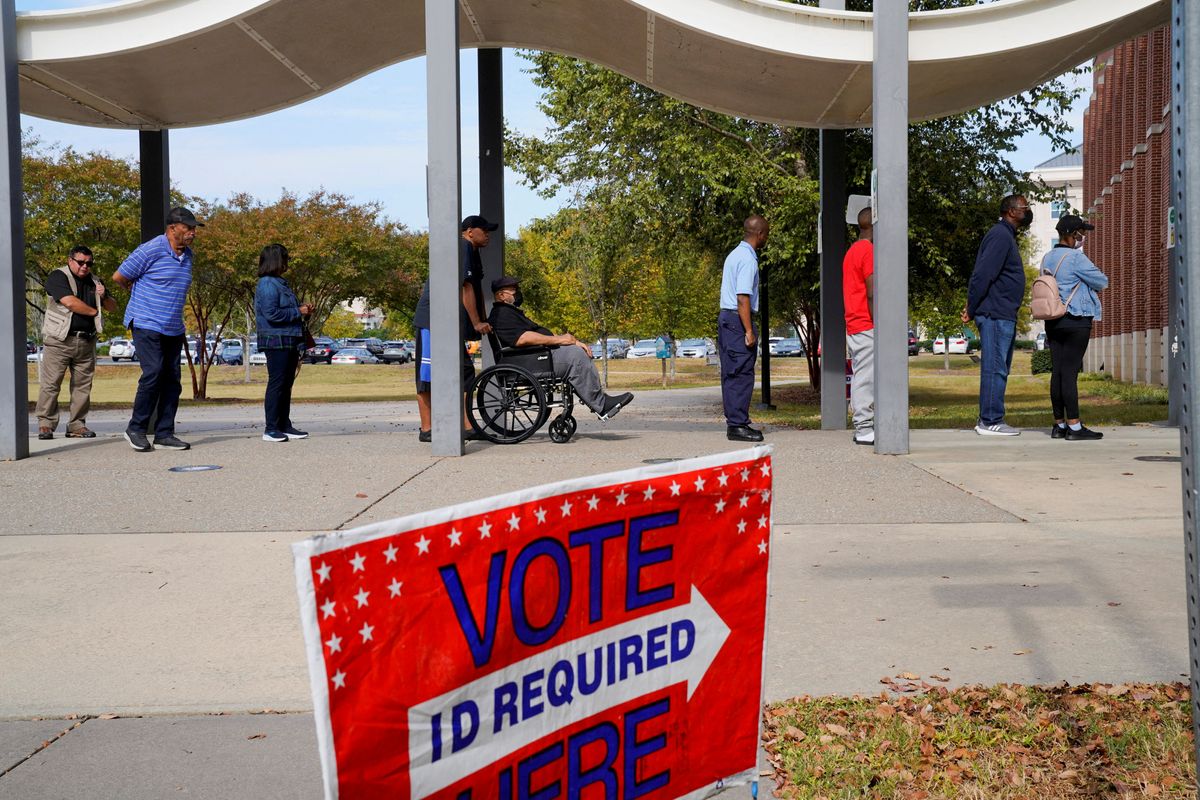The voter fraud myth, explained
Citing voter fraud, politicians can try to create laws that make voting harder – especially for BIPOC, lower-class, elderly and immigrant citizen voters.

A few minutes every morning is all you need.
Stay up to date on the world's Headlines and Human Stories. It's fun, it's factual, it's fluff-free.
In some countries, there’s been a trend where certain politicians (ahem, you-know-who) have spread uncertainty about how legit voting systems are and the reliability of election results. It’s become increasingly popular for politicians to claim the machines are rigged or minority voters are committing fraud on a huge scale to manipulate elections. And the voter fraud myth has gained a lot of traction among millions of people in several different countries.
Citing voter fraud, politicians can try to create laws that make voting harder – especially for BIPOC, lower-class, elderly and immigrant citizen voters. And the worst part is, there isn’t any real evidence to suggest that mass voter fraud is actually happening anywhere. Now, if you want to talk about election interference, that’s a different story (here’s looking at you, Russia.)
In the US, politicians at all levels of government have been claiming that the 2016, 2018 and 2020 elections were manipulated by thousands of illegal voters. Before this month’s US midterm elections, former President Donald Trump spent a lot of time pushing conspiracy theories about vote-by-mail fraud.
But, according to the Brennan Center for Justice: “Fraud is very rare, voter impersonation is virtually nonexistent, and many instances of alleged fraud are, in fact, mistakes by voters or administrators. The same is true for mail ballots, which are secure and essential to holding a safe election amid the coronavirus pandemic.” If you aren’t sure, you can check out this giant list of studies that find voter fraud to be rare and negligible when it comes to election results.
This isn’t happening just in the US. Politicians in other countries are adopting the myth of voter fraud when their team loses. After Brazil’s recent presidential election, former President Jair Bolsonaro credited his loss to Lula to voter fraud. And, leading up to the election, he spent months publicly doubting the reliability of Brazil’s electronic ballot boxes. But, on Wednesday, Brazil’s Defense Ministry released a report confirming the election ballots were, in fact, genuine, and there was no evidence of fraud.
Israel faced a similar problem, with former (and future) Prime Minister Benjamin Netanyahu saying, “We are witnessing the greatest election fraud in the history of the country” as lawmakers were looking to kick him out of office. And in Germany, the far-right has spread doubt about vote-by-mail practices. Yet, in all of these cases, there hasn’t been any solid evidence that supports their claims.




Comments ()